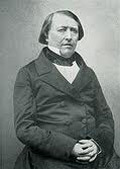the Fourth Sunday of Lent
Click here to join the effort!
Bible Commentaries
Keil & Delitzsch Old Testament Commentary Keil & Delitzsch
Old Testament
The creation, humanity's fall, the flood, and God's covenant with Abraham and his descendants. Exodus
Israel's escape from Egypt, receiving the Law, and covenant formation at Mount Sinai. Leviticus
Laws on sacrifices, purity, and holiness, guiding Israel's worship and community life. Numbers
Israel's wilderness journey, census data, and preparations for entering the Promised Land. Deuteronomy
Moses' final speeches reiterating the Law and renewing Israel's covenant before entering Canaan. Joshua
Israel's conquest, division of Canaan, and Joshua's leadership in settling the Promised Land. Judges
Israel's cycle of sin, oppression, and deliverance by judges, highlighting moral decline. Ruth
A story of loyalty and redemption, leading to Ruth becoming an ancestor of King David. 1 Samuel
Samuel's leadership, Saul's reign, and David's rise as Israel's future king. 2 Samuel
Focuses on King David's reign, his successes, personal failings, and the establishment of a united Israel. 1 Kings
Solomon's reign, the temple's construction, and the kingdom's division after his death. 2 Kings
Chronicles the history of Israel and Judah, detailing the reigns of their kings and the fall of Jerusalem. 1 Chronicles
A retelling of Israel's history, focusing on David's reign and temple preparations. 2 Chronicles
The history of Judah's kings, emphasizing temple worship, leading to Babylonian exile. Ezra
The return from exile, rebuilding the temple, and reestablishing the Law in Jerusalem. Nehemiah
Nehemiah's efforts to rebuild Jerusalem's walls and restore the community's faithfulness. Esther
A Jewish queen's courage saves her people from a plot of genocide in Persia. Job
A righteous man's suffering, his dialogues on justice, and God's ultimate sovereignty. Psalms
A collection of songs and prayers expressing worship, lament, thanksgiving, and praise to God. Proverbs
Wisdom sayings offering guidance on moral living, relationships, and the fear of God. Ecclesiastes
Reflects on the meaning of life, exploring the futility of human endeavors and the pursuit of wisdom. Song of Solomon
A poetic celebration of love, expressing deep romantic and spiritual devotion between lovers. Isaiah
Prophecies of judgment and redemption, foretelling the Messiah's coming and Israel's restoration. Jeremiah
Warnings of Jerusalem's destruction, calls for repentance, and promises of a new covenant. Lamentations
Poems mourning Jerusalem's destruction and expressing deep sorrow, yet hope in God's mercy. Ezekiel
Visions and prophecies of Jerusalem's fall, Israel's restoration, and a future temple. Daniel
Stories of faithfulness in exile and visions of future kingdoms and God's ultimate victory. Hosea
A prophet's marriage symbolizes God's steadfast love for unfaithful Israel, calling for repentance. Joel
Prophecies of a locust plague, judgment, and the outpouring of God's Spirit. Amos
A call for social justice, condemning Israel's complacency and predicting divine judgment. Obadiah
Prophecy against Edom for its betrayal of Israel, foretelling its destruction. Jonah
A reluctant prophet's mission to Nineveh, highlighting God's mercy towards repentance. Micah
Warnings of judgment, calls for justice, and prophecies of a future ruler from Bethlehem. Nahum
The impending fall of Nineveh as God's judgment against Assyrian cruelty. Habakkuk
A prophet questions God's justice, leading to a vision of divine sovereignty and faith. Zephaniah
Prophecies of judgment on Judah and surrounding nations, with promises of restoration. Haggai
Encouragement to rebuild the temple after the Babylonian exile, emphasizing God's presence. Zechariah
Visions and prophecies encouraging the returned exiles, foretelling the Messiah's coming. Malachi
A call to covenant faithfulness, addressing Israel's spiritual apathy, and predicting Elijah's return.
Author's Biography
Karl Keil (1807-1888) and Franz Delitzsch (1813-1890) stand as towering figures in the world of biblical scholarship, particularly renowned for their collaborative work on the Old Testament Commentary, a seminal series that has left a lasting impact on Christian theology and biblical exegesis. Their partnership bridged the gap between the rigorous academic analysis of Scripture and the spiritual nourishment sought by believers, blending scholarly depth with a profound respect for the biblical text's divine inspiration.
Keil, a German Protestant theologian, brought to the partnership a meticulous approach to the historical and grammatical aspects of the Old Testament. His contributions are marked by a careful, methodical examination of the text, paying close attention to its historical context and linguistic nuances. This rigorous analysis was complemented by Delitzsch, a Hebrew scholar and a Lutheran theologian, who contributed a deep understanding of the Jewish roots of Christianity and an empathetic approach to the Old Testament that highlighted its messianic prophecies and typology.
Together, Keil and Delitzsch produced a commentary series that spans the entire Old Testament, offering verse-by-verse analysis that is both academically rigorous and theologically rich. Their work is distinguished by its balance of scholarly detail and accessible writing, making it invaluable not only to theologians and scholars but also to pastors and lay readers seeking to deepen their understanding of the Old Testament.
The legacy of Keil and Delitzsch's collaboration extends far beyond their lifetimes. Their commentary series continues to be a vital resource for those studying the Old Testament, offering insights that are as relevant today as when they were first published. Their commitment to upholding the integrity of the Scripture while engaging with it critically and thoughtfully set a benchmark in biblical studies, embodying a scholarly endeavor that remains rooted in faith.
